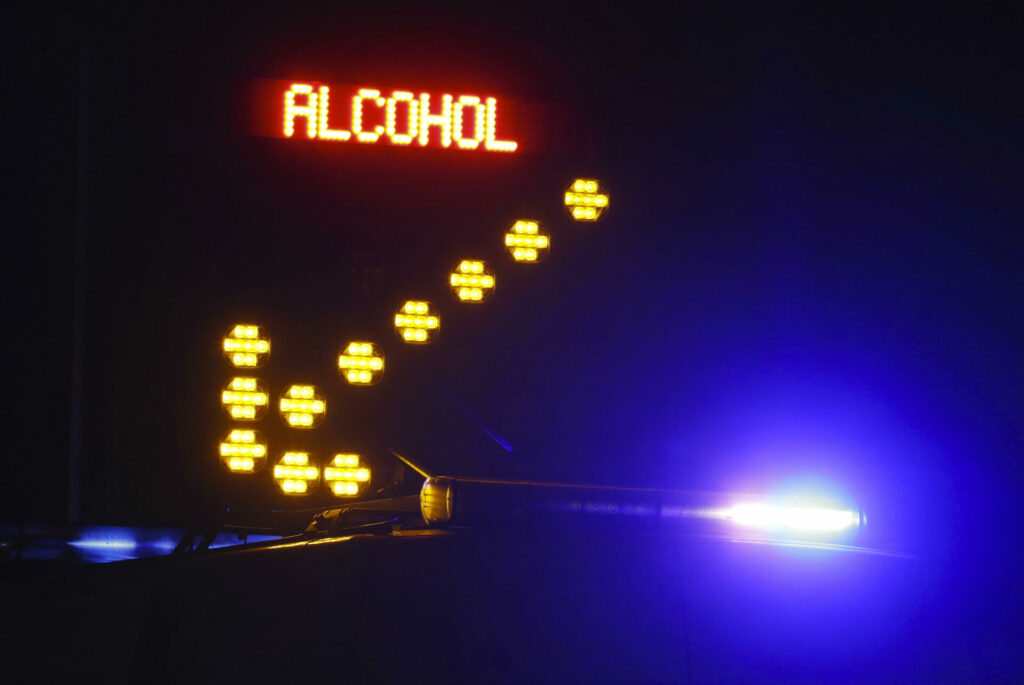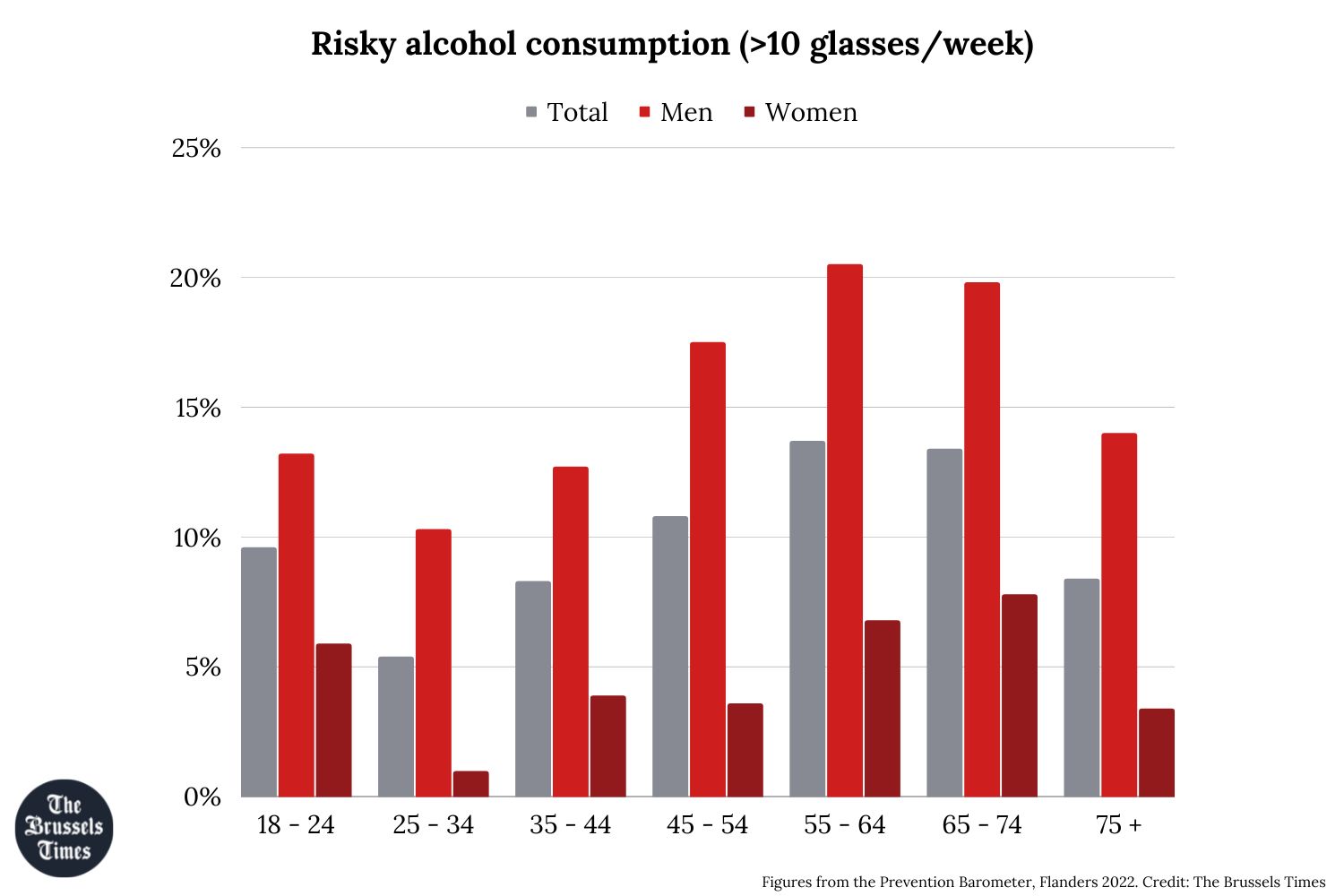One in ten people in Flanders has a dangerous relationship with alcohol. While such problematic behaviour is often thought to be most common among young people, a recent study showed the risk is higher among people over the age of 55.
"Alcohol consumption is ingrained in the cultural habits of the Flemish population," the report including the first results of the prevention barometer by Sciensano, commissioned by the Flemish government, read. Of all participants, 81.7% reported that they drank alcohol in the last 12 months.
It showed that in the region, 6.5% of people drink alcohol on a daily basis. Alcohol consumption peaks between 55 and 74 years of age, with 13.7% of people in this age group drinking ten glasses of an alcoholic beverage per week, which is considered the benchmark for "risky drinking."
Overall, men are more likely to drink excessively than women: almost one in six men drink more than 10 glasses per week compared to about one in 20 women (4.8%). "The prevalence of risky alcohol consumption is notably higher among men than women in each age group," Sciensano noted.
"The drinking behaviour of the older population in general and of the male older population, in particular, is significantly higher than in other age groups. In addition, there is greater ignorance in this group about the negative health effect of drinking (a glass of wine) every day," the report read.
"Because of the increased vulnerability of the elderly, it is important that alcohol prevention is definitely (also) focused on this target group."
Misconceptions and intentions
People aged 18- to 24-year-olds drink remarkably less than people in older age groups, while those in their twenties and thirties are least likely to drink more than ten glasses per week. Those aged between 25 and 34 have most often tried to drink less alcohol, while the 55-to-64-year-olds were least likely to quit their habits.
"A notable difference is that the intention to stop drinking alcohol in the next 12 months is actually significantly higher in the older age groups, especially among 65-74-year-olds and those aged 75 and over (both about 11%), than in the younger groups," Sciensano noted. Highly educated people are less inclined to stop drinking alcohol.
"It is the first time we have studied on such a scale the thresholds and motivations that people experience to live a healthy life," Elise Braekman, a researcher at Sciensano, said. "On a positive note, a large number of people do intend to start living healthier lives."
Related News
- Antwerp to use memes to change perceptions of binge drinking students
- Highest number of car accidents involving alcohol since 2016
Hilde Crevits, the Flemish Health Minister, stated that these results will help the region create more efficient prevention policies and do so in a targeted way.
The report highlighted that this is needed, as while there is scientific consensus that alcohol increases the risk of cancers of the mouth and throat, colon and liver, "there is limited knowledge in the population about the relationship between alcohol consumption and the increased risk of developing cancer."
This is also evident in the number of people who believe persistent misconceptions about drinking habits. For example, almost one in three people who regularly consume alcohol believe that drinking one glass of red wine a day is healthy (42% do not know this is false).


